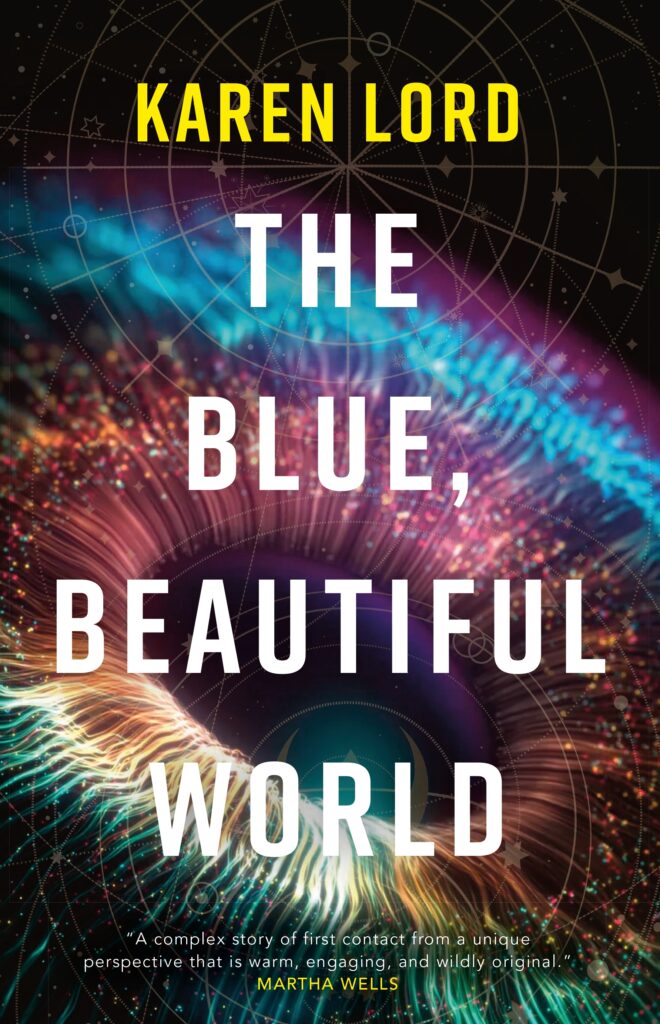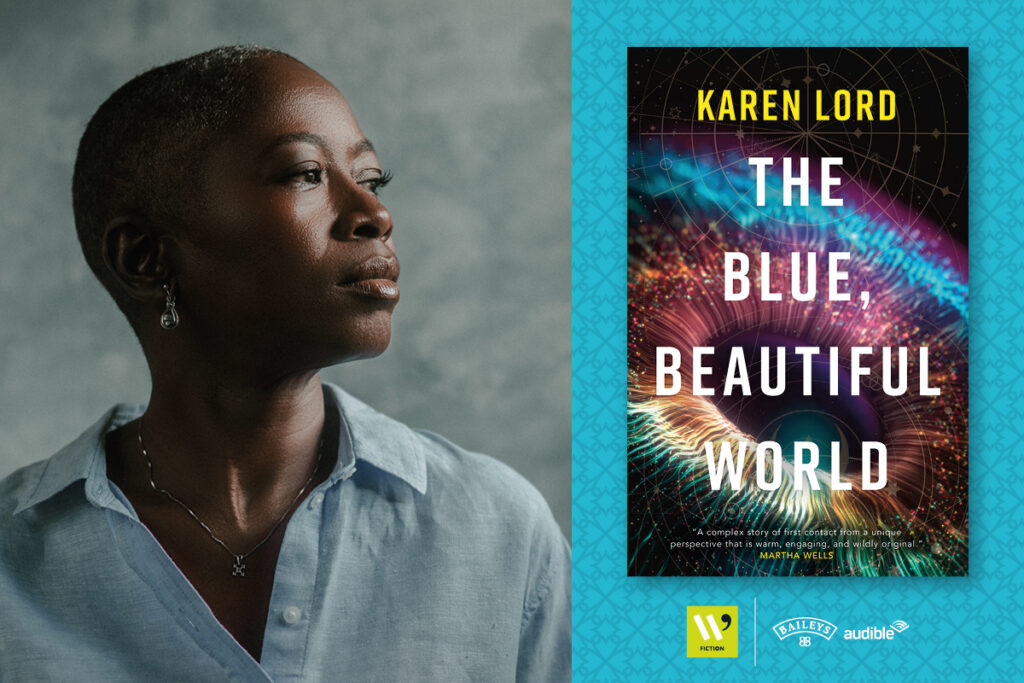A visionary science fiction novel set a century into our future against a familiar backdrop of rising seas and climate crisis, The Blue, Beautiful World by Karen Lord fuses a propulsive first contact adventure with a profoundly hopeful ode to the power of human connection.
Quite literally takes a knife to climate change and opens up what humanity is going to look like in the
future.
Anna Whitehouse

Describe your book in one sentence as if you were telling a friend.
First Contact scenario, but we’re the lesser aliens–ignorant, barbarous, socially fragmented, and neurologically challenged–and greater powers are already fighting over our resources and our sovereignty.
What inspired you to write your novel?
I liked the idea of an infant Earth being forced to grow up in order to be a peer and not a pawn in galactic affairs. Also, in the first two books of the series, I had a character learning how to use power appropriately, and I wanted this book to be the conclusion of his lifelong journey.
Which part of the book was the most fun to write? Which was the most challenging?
The protagonist’s reunion with his aunt and uncle (main characters from earlier books) was the most fun to write. I also enjoyed every scene with Peter Hendrix, the only Caribbean/Antillean Terran in the book. The most challenging was their first real conversation with the beings in the ocean depths, who are utterly uncanny yet also kin.
If you could take one book to a desert island, what would it be and why?
I’m taking FLATLAND: A ROMANCE OF MANY DIMENSIONS by Edwin A. Abbott. Few books have aged as well as this one. An encounter causes personal upheaval, introspection, paradigm shift, and transformation of self and worldview–that’s a timeless story.
Where is your favourite place to write?
What is writing? Some of the best things come to mind away from the keyboard, when walking about under the sun! I hate sitting for too long in one spot.
If you hadn’t been a writer, what would you be doing now? Where would you be?
Research with the Sir Arthur Lewis Institute of Social and Economic Studies at the University of the West Indies. That’s where I was for a portion of my writing career, and where I might have continued to be if the pandemic and other matters hadn’t changed the world and the opportunities available to me.








